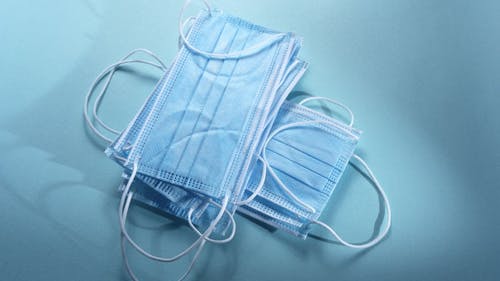Students, faculty discuss impact of lifting mask mandate in NJ public schools for children

On Feb. 7, Gov. Phil Murphy (D-N.J.) announced that students, teachers and staff in New Jersey public schools would no longer be required to wear masks effective March 7, according to a press release.
Murphy's announcement about the lifting of the universal school mask mandate comes after a statewide decline in coronavirus disease (COVID-19) cases, according to the release.
“Given the continued drop in new cases and hospitalizations, projections indicating a continued decline over the coming weeks and the continued growth of vaccinations for our school-aged population, we believe that we can responsibly end the universal mask mandate,” he said.
Though the state will no longer enforce masking at public schools, districts can still implement their own regulations, and individuals may continue to wear masks in school buildings, according to the release.
Maurice Elias, a professor in the Department of Psychology, said that just because the school-wide mask mandate will be lifted does not mean that every student must stop wearing a mask at school.
He said a student’s choice to wear masks depends on their family’s comfort level as well as other factors such as having relatives who are immunocompromised or not yet vaccinated. Elias said it is up to schools to support every child’s decision regardless of whether they choose to wear a mask.
“I think that along with the lifting of the mandate, there must be a clear message of respect for anyone that continues to choose to wear a mask,” he said. “We don't know the reason why some people feel they need to wear a mask, and so we have to make sure that there is a great deal of respect for that decision at every grade level.”
Elias said he predicts many students will be happy with the lifting of the mask mandate and being able to see peers’ faces again.
Brandon Chan, a School of Arts and Sciences first-year, said that lifting the school-wide mask mandate would be a step toward normalcy for students in New Jersey public schools.
“My sister is currently in high school, so lifting the mask mandate would help return her daily life to normal and create a more standard high school experience for her, ” he said.
Farhan Shah, a School of Arts and Sciences first-year, said that after discussing with his younger sibling, he found that the mask mandate made it more difficult for students to communicate, especially after a year of remote learning where students’ social lives changed.
Though, he said that lifting the mask mandate in schools could have potentially negative effects on students, who may see the lack of mandate as a false sign that COVID-19 is no longer a concern.
“Although our numbers have been lower, COVID-19 is still very real and still a concern,” Shah said. “By lifting the mask mandate, students such as my younger sibling will try to start normalizing everything else in their life, putting themselves at risk.”
He said adults can support students by advising against risky activities such as not wearing masks in crowded areas.
Chan said his sibling will likely be affected by the lack of social interaction and virtual instruction caused by the pandemic in the long run. He said he supports his younger sibling by listening to her and providing advice on navigating school during a pandemic.
Elias said it is essential to recognize that the pandemic has brought about numerous difficulties for children including grief, financial insecurity and emotional issues. He said adults should provide more compassion and kindness toward children during this time.
“Our big message to schools is that we should be replacing the mask mandate with a mandate for kindness, compassion, forgiveness and support, and that is what I think our kids need now,” Elias said. “Just being more willing to be kinder and more understanding of other people is the most important thing that teachers, parents, grandparents can do at this time.”



